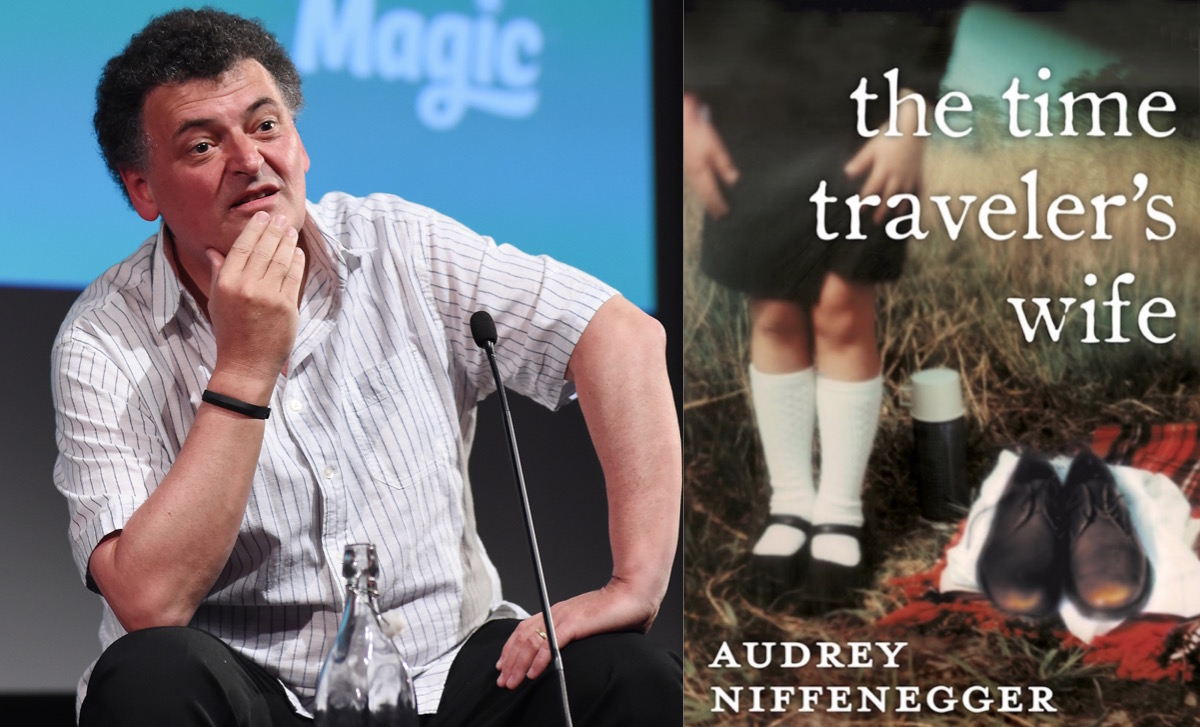I Look Forward to Never, Ever Watching Steven Moffat’s Time Traveler’s Wife Adaptation


It was announced this week that Steven Moffat of Doctor Who fame will be adapting Audrey Niffenegger’s 2003 novel The Time Traveler’s Wife as a series for HBO. As a huge fan of the book, I don’t want to say it’s unfilmable, but I will say that the story already exists in its ideal form and the circumstances would have to be perfect for an adaptation to hit anywhere close to the mark of the book. And so far, the circumstances have been pretty crappy.
The Time Traveler’s Wife, to me, is one of the most beautiful love stories out there. It tells the story of two people, Claire and Henry, who experience their life together in very different ways, due to Henry’s genetic disorder causing him to uncontrollably, spontaneously travel through time. The two, then, come at their relationship from two different directions, starting with completely different memories of meeting each other, decades apart. The time travel aspect is an interesting twist on a love story, but ultimately, it only enhances relatable elements of struggling relationships: miscommunication, inability to connect, emotional and physical distance, etc, etc.
In my mind, the key to adapting this story is getting Claire right. The book is told through alternating perspectives, with the characters trading off narrating chapters. Without that direct POV, it’s too easy to make this Henry’s story, with Claire sinking into a passive, resentful, supportive victim role. I don’t know how anyone involved in the 2009 film adaptation thought they could do anything else. Talk about crappy circumstances: in cutting this story down to 108 minutes, obviously, a lot of the nuance was going to be lost. But the first thing to go, of course, is Claire’s perspective. It may be impossible to develop both characters’ experiences equally in such a short time, and inevitably, this will become Henry’s journey, even though Claire’s is arguably the far more interesting one.
What made even less sense about that film was its choice of director. Up to that point and also since, Robert Schwentke had done nearly exclusively action/cop/crime movies. Not that an artist can’t have range, of course, but clearly, nuanced romance valuing the perspective of the female lead was not his niche.
So back to Moffat and HBO. HBO has proven itself to be a good home for well-written, female-centric stories, especially adaptations from novels. Both Big Little Lies and Sharp Objects (so far) are stellar. The longer form of a series allows for full development of these women and their experiences, and HBO is doing a great job with them. Except HBO isn’t the only common link between those two shows. Both had a number of women as executive producers, and Jean-Marc Vallée has proven to be an incredible eye for these stories, directing all of Sharp Objects and half of BLL.
Steven Moffat, for his part, is at least a fan of the book. He told The Hollywood Reporter,
I read Audrey Niffenegger’s The Time Traveler’s Wife many years ago, and I fell in love with it. In fact, I wrote a Doctor Who episode called ‘The Girl in the Fireplace’ as a direct response to it. When, in her next novel, Audrey had a character watching that very episode, I realized she was probably on to me. All these years later, the chance to adapt the novel itself, is a dream come true. The brave new world of long-form television is now ready for this kind of depth and complexity. It’s a story of happy ever after — but not necessarily in that order.
But do we trust Moffat to manage to avoid making Claire merely a supporting character in this story? Moffat, with his Girls Who Wait and his reduction of powerful women to mere supportive cheerleaders, and his refusal for so long to respect women as valuable writers and directors of his stories. Is this who we trust to tell this story? Even in eight or 10 or however many episodes, I don’t trust Moffat to do justice to Claire Abshire DeTamble.
On the surface, Claire is 100% a Girl Who Waited. But by letting her tell her own story, the book allows her to be a real person, with no one to whom she can really express her pain—the pain of being made to wait, to stay behind, the pain of her art and her miscarriages and being in love with someone who leaves with no notice to go on what just seem like great adventures (even if they’re not). That story is hard to tell. So it makes sense to focus on Henry, and leave Claire to be the neglected supporting role she appears to be on the surface. But that is not an interesting story.
So HBO and Moffat, fine. You do your thing. I’ll just spend that time over here re-reading one of my favorite books.
(image: Tabatha Fireman/Getty Images)
Want more stories like this? Become a subscriber and support the site!
—The Mary Sue has a strict comment policy that forbids, but is not limited to, personal insults toward anyone, hate speech, and trolling.—
Have a tip we should know? [email protected]
